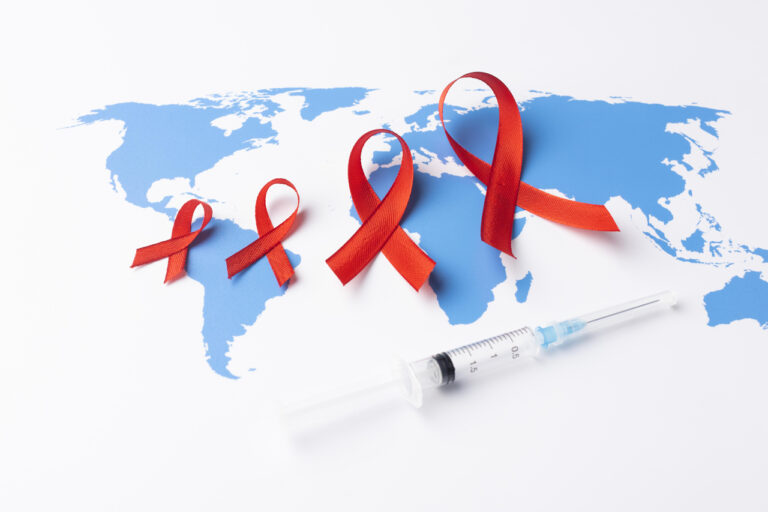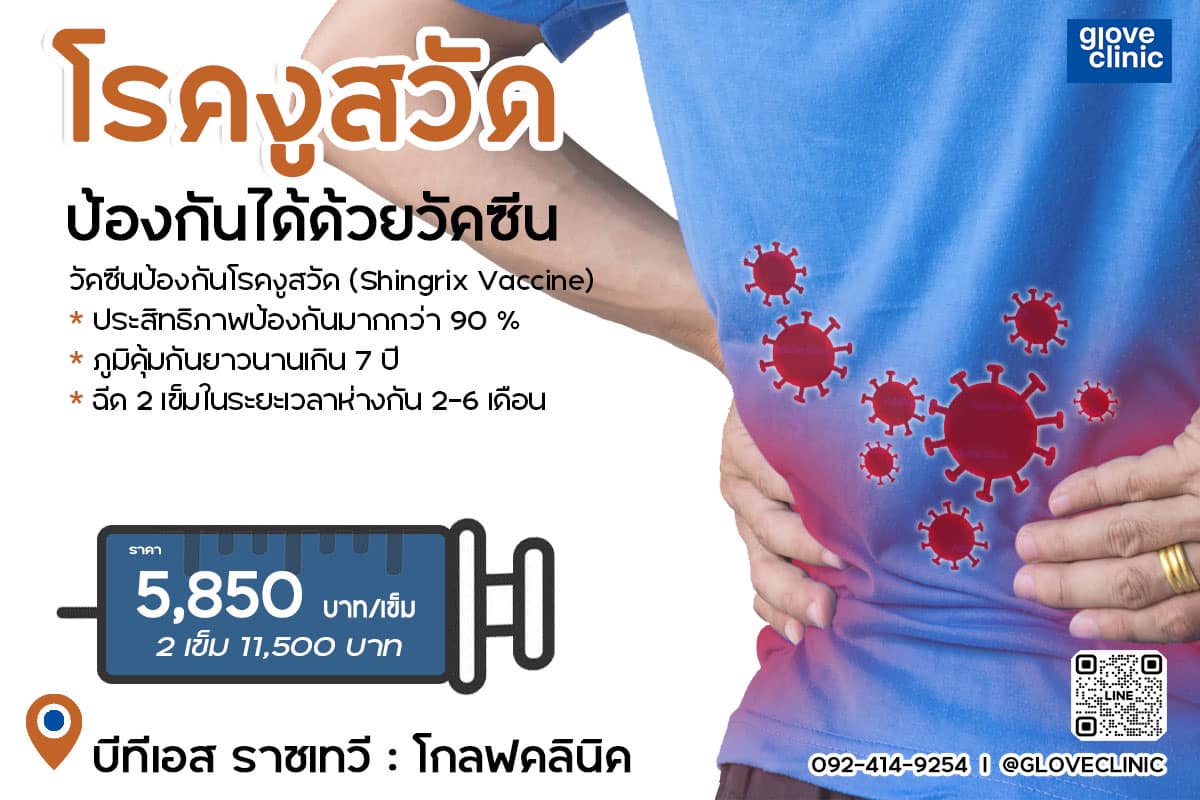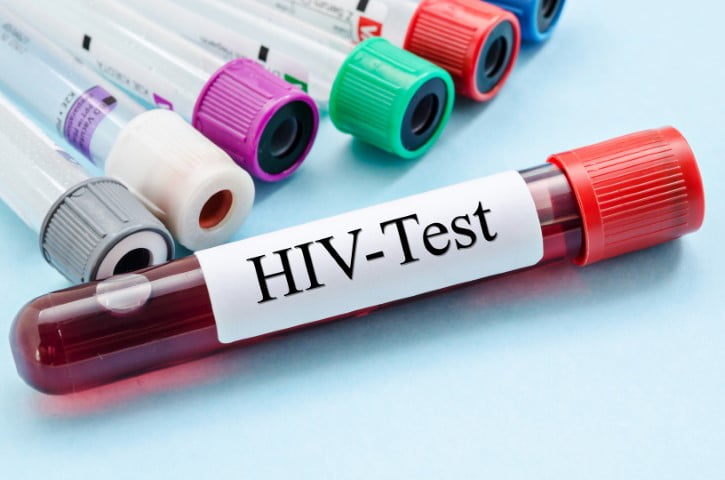294/1 Asia Building (11th Floor), Phyathai, Bangkok
HIV Test: Everything You Need to Know for Your Health at Glove Clinic

Understanding your HIV status is a crucial step towards maintaining your health and preventing further transmission. An HIV Test is the only way to know for sure if you have contracted the Human Immunodeficiency Virus. At Glove Clinic, we believe in empowering individuals with accurate information and accessible testing services. This article will guide you through the essentials of HIV testing, from how it works to what your results mean, and what steps to take next.
HIV Test: How Does It Work?
An HIV Test primarily works by detecting either antibodies that your body produces in response to the HIV virus, or by directly detecting parts of the virus itself (antigens or viral RNA).
- Antibody Tests: These are the most common type of HIV test. When HIV enters your body, your immune system produces antibodies to fight it. These tests look for these specific antibodies in your blood or oral fluid. It can take a few weeks for your body to produce enough antibodies for a test to detect them (this is called the “window period”).
- Antigen/Antibody Tests: These tests look for both HIV antibodies and HIV antigens (p24 antigen), which are proteins found on the virus. p24 antigens are produced earlier than antibodies, often appearing 2-4 weeks after infection. This type of test can detect HIV infection sooner than an antibody-only test.
- Nucleic Acid Tests (NATs): These tests look for the actual virus in the blood (viral RNA). NATs can detect HIV infection earlier than other types of tests, usually within 10-33 days of exposure. They are typically used in specific situations, such as when someone has had a recent high-risk exposure or for screening blood donations.
How Many Types of HIV Tests Are There?
There are several types of HIV Test methods, each with slight variations in how they collect samples and how quickly they provide results:
- Blood Tests:
- Venipuncture (Blood Draw): A blood sample is drawn from a vein, usually in your arm, and sent to a lab for analysis. This is considered highly accurate.
- Finger Prick (Rapid Blood Test): A small blood sample is taken from your fingertip. These tests are quick, offering results in minutes, and are often used for HIV rapid testing.
- Oral Fluid Tests:
- A swab is used to collect a sample of fluid from your mouth (not saliva, but the fluid between your gum and cheek). These are also rapid tests.
- Combination Tests (Antigen/Antibody Tests):
- As mentioned, these look for both antibodies and antigens, providing an earlier detection window than antibody-only tests. They are typically blood tests.
- Nucleic Acid Tests (NATs):
- These are usually blood tests that directly detect the virus and can identify very early infections.
Schedule Your Appointment Today for HIV testing
Don’t wait to take control of your sexual health. Schedule your appointment at GLOVE Clinic today and experience the difference.
Address: 294/1 Asia Building (unit K, 11th floor) Phayathai Rd., Ratchadhevi Bangkok
Call us: (+66) 02-219-3092, (+66) 092-414-9254
Email: info@gloveclinic.com
Can I Do the HIV Test by Myself? (HIV Self Test)
Yes, you can! HIV self-test kits are available and allow you to test for HIV privately at home or in a location of your choice. These kits typically involve either a finger-prick blood sample or an oral fluid sample.
Benefits of HIV self test:
- Privacy: Test in the comfort of your own home.
- Convenience: Test whenever and wherever it suits you.
- Accessibility: Easier access to testing for some individuals.
Important considerations for HIV self test:
- Accuracy: While generally reliable when used correctly, follow the instructions precisely.
- Confirmation: A positive result from an HIV self-test always requires a confirmatory test at a clinic or hospital to confirm the diagnosis.
- Window Period: Self-tests, like other antibody/antigen tests, have a window period during which they might not detect a very recent infection.
How Long is Waiting for the Result of HIV Test?
The waiting time for HIV Test results depends on the type of test used:
- Rapid Tests (Blood Finger Prick or Oral Fluid): You can often get results for an HIV rapid test within 15-30 minutes. This is ideal for quick screening and immediate feedback.
- Lab-based Tests (Venipuncture Blood Draw): Results from these tests, which are sent to a laboratory for analysis, typically take a few days to a week to come back. These tests are often more sensitive and are used for confirmation.
- Nucleic Acid Tests (NATs): Results for NATs usually take a few days to process.
HIV Rapid Test: How Much Time for the Result?
For an HIV rapid test, the result is usually available very quickly, often within 15 to 30 minutes. This allows for immediate counselling and guidance on next steps if the result is reactive (positive).
What Is the Result of HIV Test?
Your HIV Test result will typically be one of two outcomes:
- Non-Reactive (Negative): This means that no HIV antibodies or antigens were detected in your sample at the time of the test. If you have not had any recent exposures (within the window period), a negative result usually means you do not have HIV. However, if you’ve had a recent potential exposure, your doctor might recommend retesting after the window period.
- Reactive (Positive): This means that HIV antibodies or antigens were detected in your sample. A reactive result indicates a probable HIV infection. It’s crucial to understand that a reactive rapid test result must be confirmed by a second, more specific laboratory test (confirmatory test) before a definitive diagnosis of HIV infection is made.
What Should I Do When I Have HIV? (HIV Treatment)
If your HIV Test results come back as reactive and are confirmed positive, it’s natural to feel a range of emotions. However, it’s vital to remember that HIV Treatment has advanced significantly. Living with HIV today is very different from what it was decades ago.
Here’s what you should do:
- Seek Medical Advice Immediately: Contact your doctor or a specialized HIV clinic as soon as possible. They will guide you through the next steps, including further tests to assess your health and the stage of your infection.
- Start Antiretroviral Therapy (ART): This is the cornerstone of HIV Treatment. ART involves taking a combination of ยาต้านไวรัส (antiviral medications) daily. ART works by suppressing the virus, reducing the viral load (the amount of HIV in your blood) to undetectable levels. When the viral load is undetectable, HIV cannot be transmitted sexually (Undetectable = Untransmittable, or U=U).
- Adhere to Treatment: Taking your ยาต้านไวรัส consistently and exactly as prescribed is crucial for the success of your HIV Treatment.
- Regular Medical Check-ups: Regular visits to your doctor are essential to monitor your health, viral load, CD4 count (a measure of your immune system’s strength), and to manage any potential side effects.
- Maintain a Healthy Lifestyle: Eat a balanced diet, exercise regularly, get enough sleep, and avoid smoking and excessive alcohol consumption. This supports your overall health and immune system.
- Seek Support: Connect with support groups, counsellors, or trusted friends and family. Having a strong support system can make a big difference in coping with the diagnosis.
- Discuss Prevention with Partners: It’s important to openly communicate with your sexual partners about your HIV status and to use condoms consistently to prevent the transmission of HIV and other STIs.
Your Health Matters: Get Tested and Get Care at Glove Clinic
At Glove Clinic, we are committed to providing comprehensive sexual health services. Whether you need an HIV Test, advice on HIV Treatment, or information about PrEP (Pre-Exposure Prophylaxis) to prevent HIV, our experienced team is here to help. We offer confidential testing, accurate results, and compassionate care in a supportive environment.
Don’t let uncertainty affect your peace of mind. Taking an HIV Test is a responsible step for your health and the health of your community.
Glove Clinic is located at 294/1 Asia Building (11th Floor, Unit K), Phayathai Road, Ratchathewi, Bangkok.
Contact us today to schedule your confidential appointment:
- Call us: (+66) 02-219-3092, (+66) 092-414-9254
- Email us: info@gloveclinic.com
Invest in your health. Get tested. Get peace of mind.
Make Appointment





Relate content :

Lip Syphilis: Understanding Oral Chancres and Why Immediate Testing is Crucial
Concerned about a painless sore? Learn about lip syphilis symptoms, how it's contracted, and why immediate antibiotic cure is vital. Get rapid, confidential testing at Glove Clinic.
STD testing: Empowering You to Take Control of Your Sexual Health
Find out where to get confidential STD testing in Bangkok, Learn about options and other services for your sexual health.
HIV Test: Everything You Need to Know for Your Health at Glove Clinic
Worried about HIV symptoms? Find out where to get an HIV Test, understand results, and learn about HIV Treatment options. Get confidential STD testing at Glove Clinic.
Your Guide to Sexual Health Clinics: Everything You Need to Know
Are you seeking information about sexual health clinics? Whether you're looking for routine check-ups, specific treatments, or simply want to learn more about your sexual health, this blog post is here to guide you. We'll discuss what sexual health clinics are, how to choose the right one, and provide a spotlight on sexual health clinics…
ฉีดวัคซีนงูสวัดที่ glove clinic
งูสวัดคือไวรัสชนิดหนึ่ง (Herpes zoster) ซึ่งเป็นเชื้อไวรัสตัวเดียวกันกับอีสุกอีใส (Varicella zoster) เมื่อเราติดเชื้อไวรัสอีสุกใสในวัยเด็กแล้ว ไวรัสสามารถที่จะหลบซ่อนได้ในร่างกายเป็นเวลานานหลายปี จนกระทั่งเมื่อร่างกายอ่อนแอ ไวรัสนั้นจึงออกมาทำให้เกิดอาการตุ่มน้ำใส ปวดแสบร้อนตามบริเวณที่เส้นประสาทต่าง ๆ ของร่างกายซึ่งเรียกกันว่างูสวัด
